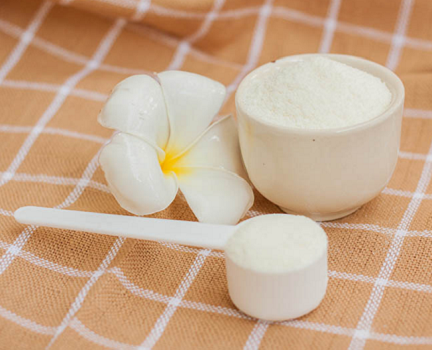Blog

The Collagen Connection DISCLAIMER This blog has not been approved by your local health department and is not intended to provide diagnosis, treatment, or medical advice. Read More By Dr. Michael Murray, N.D. This unheralded protein plays a key role in keeping us together—literally The most abundant protein in the human body, collagen is also the main component of connective tissue such as tendons, ligaments, cartilage, bone, and blood vessels. As we age, the collagen-rich support structure of the skin (known as the dermis) changes. The activity of fibroblasts—cells responsible for making collagen—slows down, which leads to changes that make skin look old. The collagen production in our joints also slows with age, which may lead to osteoarthritis. And decreased collagen in bone is a key factor in osteoporosis. The amount of collagen determines the number of “bone mineral binding sites.” If the collagen content is low, bone becomes more brittle and fracture risk increases dramatically. ▲Increasing Collagen To fight the problem of declining collagen levels, we need to increase the activity of collagen-producing cells. One of the best ways to do this is the use of a special form of silica—choline stabilized orthosilicic acid (ChOSA). In one study, women with signs of aging skin who received 10 mg of ChOSA daily saw a 30 percent improvement in fine lines, 55 percent increased skin elasticity and a reduction in brittle nails and hair. ChOSA has also shown benefits in promoting bone health. In a detailed double-blind study of postmenopausal women with low bone density, ChOSA was able to increase the collagen content of the bone by 22 percent and increase bone density by 2 percent. The typical dosage is 6–10 mg per day. ▲Flavonoids are Critical Flavonoids are plant pigments that support healthy collagen levels. Especially beneficial are the blue or purple pigments—anthocyanidins and PCOs (short for proanthocyanidin oligomers)—found in grapes, blueberries, and pine bark and grape seed extracts. Among their benefits: They have the ability to crosslink collagen fibers, reinforcing the natural crosslinking that forms the collagen matrix of connective tissue. They inhibit the destruction of collagen structures by enzymes secreted by white blood cells during inflammation. To take advantage of these flavonoids, increase your intake of richly colored berries and other fruits. And supplement with a PCO-rich extract such as grape seed or pine bark (50– 150 mg per day) for general support. ▲Dr Murray This article was written by Dr. Michael Murray, iHerb's Chief Scientific Advisor. For over three decades, Dr. Murray has been a thought leader, author, and expert in nutrition, dietary supplements, and natural products. He has published more than 30 books, including the bestselling Encyclopedia of Natural Medicine, now in its fifth edition, which has been used by over 100,000 health care professionals across the globe. Learn more about him on DoctorMurray.com or his iHerb Page.

Comments (0)